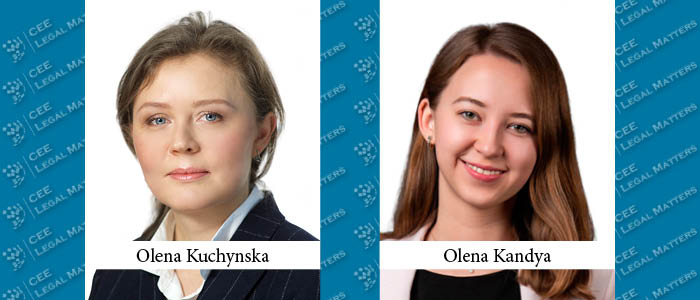On 8 March 2024, the Law of Ukraine “Introducing Amendments to Certain Laws of Ukraine on the Enhancement of Corporate Governance” (the “Law” or the “SOE Law”) entered into force. This Law is a significant step towards the alignment of the Ukrainian legal framework for state-owned enterprises (“SOEs”) with international best practices, particularly the OECD Guidelines for Corporate Governance of SOEs (“OECD Guidelines”).
Reflecting this first-hand experience, Kinstellar highlights the role of the adopted Law for the SOE sector, the overall business environment and the broader post-war recovery efforts, and also shares some practical insights on the adopted changes.
Role of SOE Law: Understanding the Big Picture
Since 2014, Ukrainian governments have, on numerous occasions, attempted to enhance the country’s legal framework on the corporate governance of SOEs. Such reforms were deemed to be crucial, given the significantly large SOE portfolio and the lack of efficiency in the operations of the SOE sector. In any event, these past reform efforts remained patchy, and proved unable to address obsolete practices comprehensively. The adoption in first reading of draft law No.5593-d (“SOE Draft Law”) in 2021 marked a significant step forward in Ukraine towards far more comprehensive reforms – one, albeit suspended as a consequence of the full-scale Russian invasion the following year.
Subsequently, in light of a renewed understanding of the significance of SOE reforms for Ukraine’s much-needed reconstruction and recovery efforts, work on the SOE Draft Law was actively resumed in 2023. Assisting EBRD in its technical support to the Ministry of the Economy of Ukraine, Kinstellar contributed to the redrafting of SOE Draft Law. This work entailed both technical and substantive revisions of the text to better reflect the necessity of processing numerous amendments suggested by members of parliament (MPs), the need to balance and implement suggestions by various stakeholders, and the adoption of new legislation on joint stock companies. Upon numerous rounds of consultations and discussions between the diverse working groups engaged in the enhancement of the draft legislation, the SOE Law was ultimately passed in February 2024, and is designed to reflect a viable consensus between key stakeholders.
The Law is designed to fully reflect the aspirations of Ukraine to align its corporate governance framework with best practice standards, including the OECD Guidelines. For example, the Law empowers supervisory boards of SOEs with key responsibilities, finally entrusting them with strategic guidance functions. New approaches to remuneration, grounds for dismissal of Supervisory Board members and the evaluation of Board activities also establish necessary safeguards from undue political interference. The Law also offers other welcome changes, including the elimination of the basic minimum state dividend pay-out ratio, the introduction of new instruments for the enhancement of exercising a state ownership function – such as an overarching State Ownership Policy to be developed by the government – and requires letters of expectation to be approved annually by SOEs.
At the same time, the Law includes provisions that reflect the challenges of a state in the midst of war. In particular, in order to avoid any delays to operational decisions by SOEs in the current wartime realities, the Law allows for the transfer of the exclusive powers of Supervisory Boards to the ownership entity/shareholder for the period of the temporary absence of a fully authorised Board composition. The SOE Law also includes certain fiscal restrictions, which the state deems to be a necessary safeguard during the ongoing period of martial law. For example, a mandatory 30% dividend rate is established for a transition period, while the operational independence of a number of key SOEs in financial planning remains restricted. Such provisions are not yet fully aligned with international best practice standards; however, their inclusion is deemed to be required under the current circumstances. A positive sign is that the most such provisions are of transitional nature, effective only during the period of martial law and within 12 months upon its termination – but not longer than within 3 years upon the entry of the Law into force. Crucially, in three years the Ukrainian government also plans to devise further reforms to the corporate governance of SOEs, which further underscores the significance of the Law as a vital step in ongoing reforms.
All in all, the adoption of the Law can be viewed as a much-needed and highly anticipated forward step. For Ukraine, such significant progress with the enhancement of the corporate governance framework marks a willingness by the country to meet its international commitments. New rules for public sector entities and the creation of a level playing field for SOEs (to the extent possible in wartime) should increase the efficiency of more than just the SOE sector. Provided that any future secondary legislation aligns with the principles outlined in the Law, the changes implemented by the SOE Law should also enhance the overall business environment, fostering investor trust in the recovery and reconstruction of Ukraine’s economy.
Overview of Main Developments under the SOE Law
- Fundamental changes in the Status of SOE Supervisory Boards
- Supervisory Board establishment is mandatory for those SOEs meeting the criteria outlined in the State Ownership Policy, or as required by law. A one-tier Board may be established in the SOE where a Supervisory Board is not mandatory.
- Independent members should constitute the majority of all members of an SOE’s Supervisory Board. The SOE Law also includes a revised list of independence criteria.
- Supervisory Boards are empowered with key operational responsibilities, including the approval of financial, strategic and investment plans, the appointment and termination of the authority of CEOs, and a determination of their remuneration.
- However, during the transition period (within 12 months upon the termination of martial law, but not longer than within 3 years upon the entry of the Law into force), any Supervisory Board exclusive powers can be transferred to the ownership entity/shareholder if the fully authorised composition of the Supervisory Board of the given SOE is absent during this transition period. Once the authorised members of the Supervisory Board are duly appointed, the Board may revise any decisions adopted during its temporary absence.
- The SOE Law also restricts the independence of SOE Supervisory Boards that are (1) natural monopolies and (2) enterprises with target estimated net profits over UAH 50m (“Key SOEs”) in financial planning. In particular, the Ministry of Finance is granted authority with respect to the:
- pre-approval of certain key financial indicators of Key SOEs (to be further incorporated into their financial, strategic and investment plans),
- approval of accounting methodologies of Key SOEs for so-called doubtful
debts, and - approval of maximum thresholds for capital investments by Key SOEs during transition periods.
- A procedure for the evaluation of Supervisory Board activities is introduced, which should take place at least once every three years. The evaluation procedure is not regulated by the Law in detail; rather, it should be developed by the government via subsequent secondary legislation. Evaluation results should be available on the SOE website. An independent consultant may be engaged for such an evaluation. A report or self-evaluation, or explanations of the actions by the Supervisory Board may also be used. Evaluation results may be considered when the matter of the early termination of the authority of Board members is decided.
- The Law establishes an exhaustive list of grounds for the early termination of the authority of members of Supervisory Boards with termination procedures varying depending on these grounds.
- Exercising an ownership function
- The Cabinet of Ministers of Ukraine has a mandate to develop the State Ownership Policy, subject to regular revision and public consultations. Such an overarching policy document is expected to define the principles of key matters including the justification and goals for state ownership of SOEs, the classification of SOEs, the determination of SOE categories subject to non-financial goals, and the criteria for the mandatory establishment of Supervisory Boards.
- Remuneration Policies and the State Dividend Policy constitute integral parts of the State Ownership Policy. Such policies should include principles and methodological approaches for defining:
- the remuneration levels of members of executive and supervisory bodies of SOEs and
- the amount and payment of dividends to the state budget, respectively.
- Based on the State Ownership Policy and upon holding consultations with the Supervisory Board, the ownership entity/shareholders should approve an annual owner’s letter of expectation, outlining short- and mid-term financial, operational and non-financial performance objectives for SOEs. Owner’s letters of expectation are subject to publication. The Ministry of the Economy of Ukraine has the authority to develop guidelines on the preparation of letters of expectation. Letters of expectation of Key SOEs should include certain key financial indicators as pre-approved by the Ministry of Finance.
- Dividend payments
- Decisions on dividend payments should be adopted by the ownership entity or by shareholders of the SOE in line with the State Dividend Policy upon the issuance of the financial and economic results of the SOE for the given year. Supervisory Boards have the authority to submit suggestions on dividend levels in line with the State Dividend Policy.
- However, the Law establishes a mandatory 30% dividend rate for all SOEs for the transition period (during martial law, and within 12 months upon its termination, but not longer than within 3 years upon the entry of the Law into force).
- Dividends can be paid in instalments if the government adopts the respective decision.
The Law provides for the consolidated payment of dividends for company groups.
By Olena Kuchynska, Managing Partner, and Olena Kandya, Senior Associate, Kinstellar
















